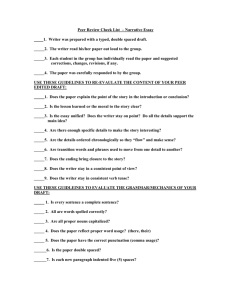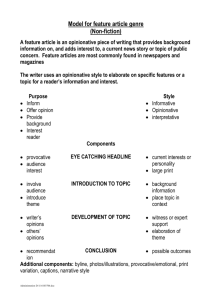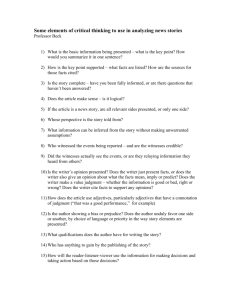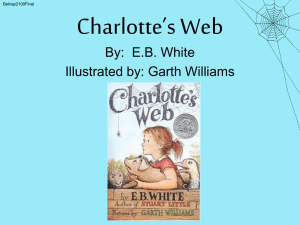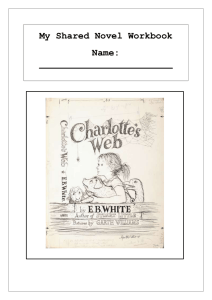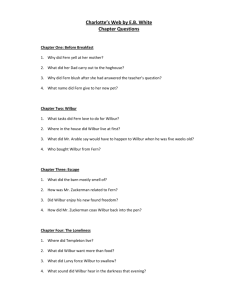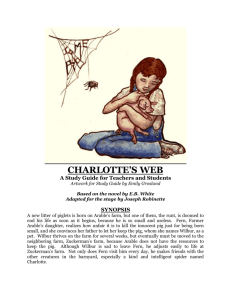Literary Essay Sample Paper
advertisement
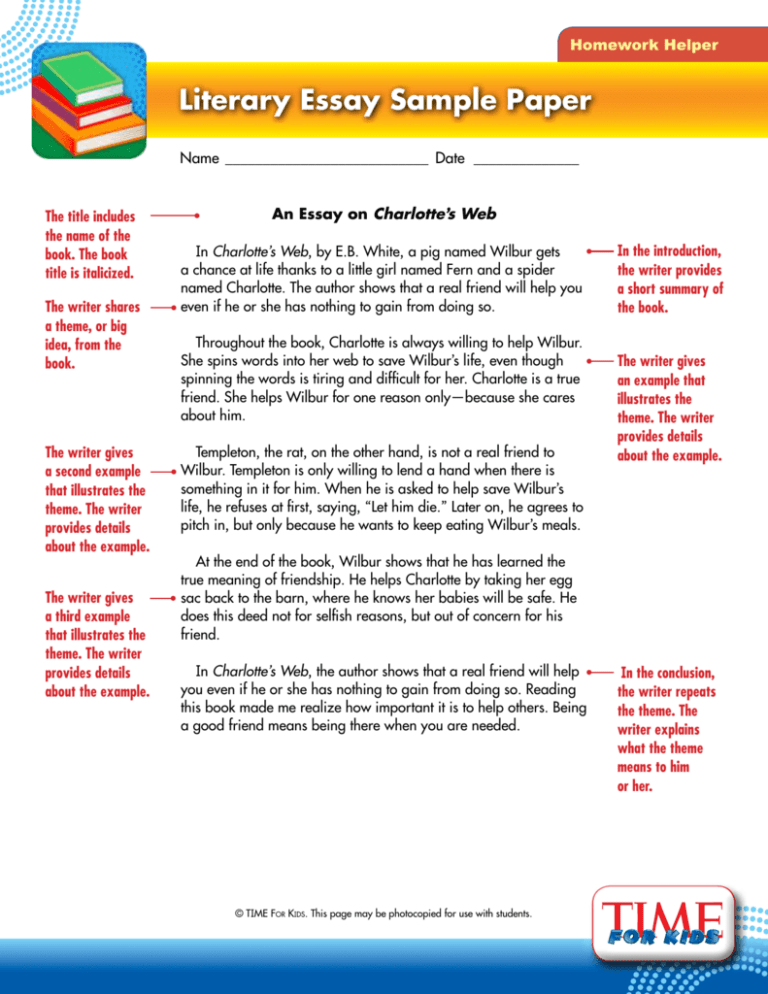
Homework Helper Literary Essay Sample Paper Name_ ___________________________ Date _______________ The title includes the name of the book. The book title is italicized. The writer shares a theme, or big idea, from the book. The writer gives a second example that illustrates the theme. The writer provides details about the example. The writer gives a third example that illustrates the theme. The writer provides details about the example. An Essay on Charlotte’s Web In Charlotte’s Web, by E.B. White, a pig named Wilbur gets a chance at life thanks to a little girl named Fern and a spider named Charlotte. The author shows that a real friend will help you even if he or she has nothing to gain from doing so. Throughout the book, Charlotte is always willing to help Wilbur. She spins words into her web to save Wilbur’s life, even though spinning the words is tiring and difficult for her. Charlotte is a true friend. She helps Wilbur for one reason only—because she cares about him. Templeton, the rat, on the other hand, is not a real friend to _ Wilbur. Templeton is only willing to lend a hand when there is something in it for him. When he is asked to help save Wilbur’s life, he refuses at first, saying, “Let him die.” Later on, he agrees to pitch in, but only because he wants to keep eating Wilbur’s meals. In the introduction, the writer provides a short summary of the book. The writer gives an example that illustrates the theme. The writer provides details about the example. At the end of the book, Wilbur shows that he has learned the true meaning of friendship. He helps Charlotte by taking her egg sac back to the barn, where he knows her babies will be safe. He does this deed not for selfish reasons, but out of concern for his friend. In Charlotte’s Web, the author shows that a real friend will help you even if he or she has nothing to gain from doing so. Reading this book made me realize how important it is to help others. Being a good friend means being there when you are needed. © TIME For Kids. This page may be photocopied for use with students. In the conclusion, the writer repeats the theme. The writer explains what the theme means to him or her.



